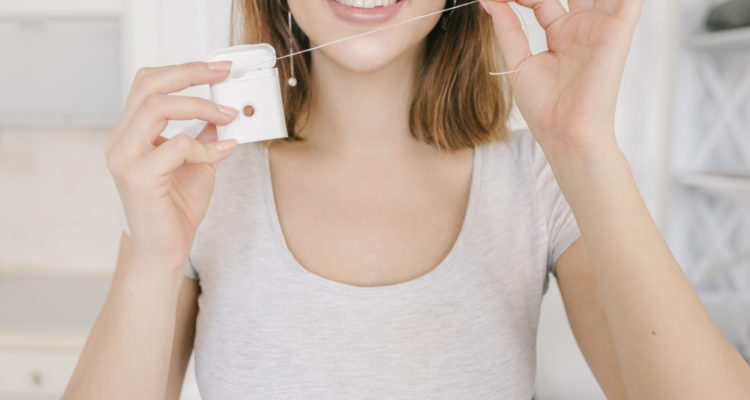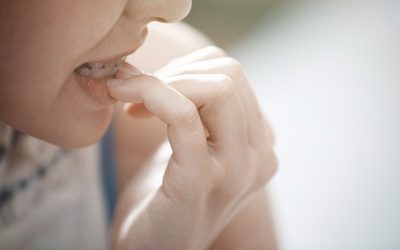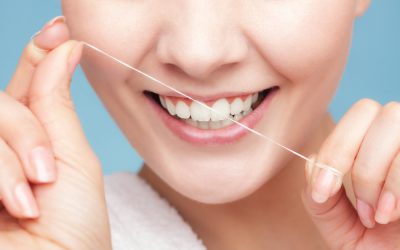It’s late, you’re tired, and you’ve already brushed your teeth – why do you need to floss them too? How many nights have you told yourself that a quick scrub with the toothbrush would suffice, and then skipped the flossing entirely? If you’ve said this on too many evenings to count, then you are not alone: surveys and polls have found that a majority of people brush their teeth every day, but believe that tooth-brushing alone is sufficient to maintain good oral health and prevent cavities.
The American Dental Association (ADA), Center for Disease Control (CDC), Surgeon General, and Department of Health and Human Services (HSS) all advocate flossing as a necessary action to protect the health of your teeth and gums and prevent the buildup of plaque that causes tooth decay and gum disease. As you eat and drink throughout the day, bacteria that live in your mouth feed on the sugars and food particles you ingest. Over time, a sticky build-up of plaque forms on the teeth and along the gum line and causes cavities, gingivitis, and periodontal disease. Built-up plaque can also harden and become tarter, which only a dentist can remove from your mouth.
This is where flossing comes in: while tooth-brushing clears away plaque and debris from the surface of teeth, a toothbrush cannot reach into the crevices between teeth and under the gum line. Plaque is much easier to remove while it is still soft and sticky, and once it becomes hardened tarter it will be impossible for you to scrape out on your own. In order to clean these hard-to-reach areas, an interdental cleaner is required. There are multiple types of interdental cleaners at your disposal:
- Floss: Floss is the most commonly used interdental cleaner. It is cheap, effective, and usually given to you for free every time you pay a visit to the dentist.
- Dental picks: Dental picks are convenient tools to use in hard to reach places, like the back of your mouth. They are smaller and more versatile than floss.
- Water flossers: Water flossers work best for people who have conditions that make maneuvering floss difficult – such as arthritis – and also for people who have a lot of dental hardware – such as braces – that makes flossing a challenge.
Flossing is most effective when used in conjunction with other good oral hygiene habits: you should be brushing your teeth twice a day for two minutes, flossing once daily, and using an antibacterial mouthwash once daily. Combined, these measures ensure that the majority of bad bacteria and plaque is cleaned away before it causes damage.
Proper technique is just as important as the act itself: to begin, tear off a length of floss approximately 18 inches long and wrap it around the second or third fingertips on both hands. Smoothly guide the floss between each tooth and curve the string in a “C” shape so it runs along the entire edge of the tooth and gum. Make sure to thoroughly floss on both sides of each tooth. And be gentle – sawing motions and pulling too hard will only irritate your gums, damage mouth tissues, and cause bleeding. While a little blood is common when you and your teeth are new to flossing, if bleeding persists see your dentist as soon as possible.
Floss once daily – preferably at night, after you’ve finished eating for the day. However, if you find yourself consistently putting off flossing right before bed, then choose any time of day when you have a few minutes to spare. As with any oral health product you purchase, choose floss with the ADA Seal of Approval, which means it is safe and effective for use. Flossing daily is not only healthy for your teeth now, but it is an inexpensive and simple preventative measure that will save you time and costly oral treatments down the road. If you have any questions about the correct way to floss, or the benefits gained from consistent flossing, schedule an appointment with Boyett Family Dentistry to speak with Dr. Boyett and share your concerns. Give us a call today at 863-294-9200.
Have flossing down pat? Click here to learn more about mouthwash, and which type you should be using every day.






